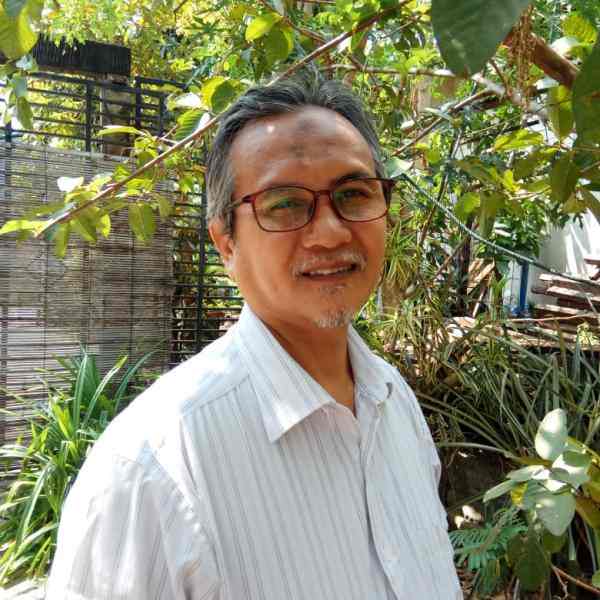Introduction
Idham Ibty of Yogyakarta is building a new community-based and interest-free credit system for petty traders and other grassroots micro-businesses. The rich of the community are the investors and shareholders, and are paid a flat ten percent of the total profits of any business that takes a loan.
The New Idea
The present system makes it difficult for petty traders and other local small businesses to find soft loans. What is available is either political (not available to most) or unaffordable.
Idham seeks to solve this problem through a new form of local investing that will provide local small-business owners affordable (non-interest bearing) equity-like credit. That this form of lending is acceptable to Islam, which abhors interest mechanisms, makes Idham's possible alternative all the more attractive.
Idham's approach draws strength from the local community and is also designed to reinforce that same community's solidarity and build its economic prosperity. He provides a local savings vehicle for those able to save, enabling them to invest locally and obtain a decent return that over time promises to stay ahead of inflation. They are buffered against risk by Idham's organization's working with the borrower and assuming risk directly. The borrowers obtain local resources, a payment schedule tied to their being profitable, technical help, and the possibility of marketing assistance both from Idham and the influential neighbors who are investing.
Idham also hopes his system will prevent "capital flight." Those who have money spend it in the community, and those who need capital get loans from the community. Furthermore, the profit they make will also stay in the community.
The Problem
A village's small traders and business owners commonly cannot obtain affordable capital. Bank credit is generally not accessible as it is available only on political grounds, or overly priced, especially where informal payments are added into the calculus. Money lenders are a quicker, but costly choice.
Cooperatives and credit unions, in theory, offer affordable alternatives. However, they also generally suffer tight political control and, in any case, reach relatively few people. Their complex legal and organizational requirements are a barrier to most people. Islam's injunction against paying interest also is increasingly troubling to some groups in a population experiencing increased Islamic activity.
The Strategy
Starting in 1990 in Bantul, Yogyakarta, Idham developed a systematic approach to triggering this cycle of community success. He first identifies members of the community who have money available for investment. He then persuades them to save money in the organization he built. Which leads to making profit-sharing loans to members of the community with solid productive ideas in return for ten percent of the venture's profits over the life of the loan plus a one percent processing fee.
Recognizing that affordable capital alone is not enough, he organizes training in financial and other business skills for his borrowers. He also helps them think through coherent, practical marketing plans; and he tries, sometimes assisted by the investors, to help open markets, especially local markets. As his local organizations build these sort of market linkages, Idham hopes that cumulatively the effort will help reestablish economically strong local communities whose members interact and support one another in the rich myriad ways that had characterized them in an earlier, more self-reliant past.
As an activist who has many contacts in the Yogyakarta region, Idham is optimistic that he can spread his model widely in the area and that, once successful in this educational and cultural capital, it will spread even more widely.
The Person
Idham was born in 1964 to a simple family. Since high school, he looked out for solutions regarding social problems. His entrepreneurial impulse and ability were also apparent when he was an adolescent. Upon entering junior high school, he had to look for a source of income. He responded by consulting small traders on financial management. This, later on, led to a business purchasing and distributing furniture. As a university student, he was actively involved in designing income-generating activity programs. Lastly, he took part in many courses on small enterprise management and was involved in designing a project to increase people's income in Yogyakarta.
